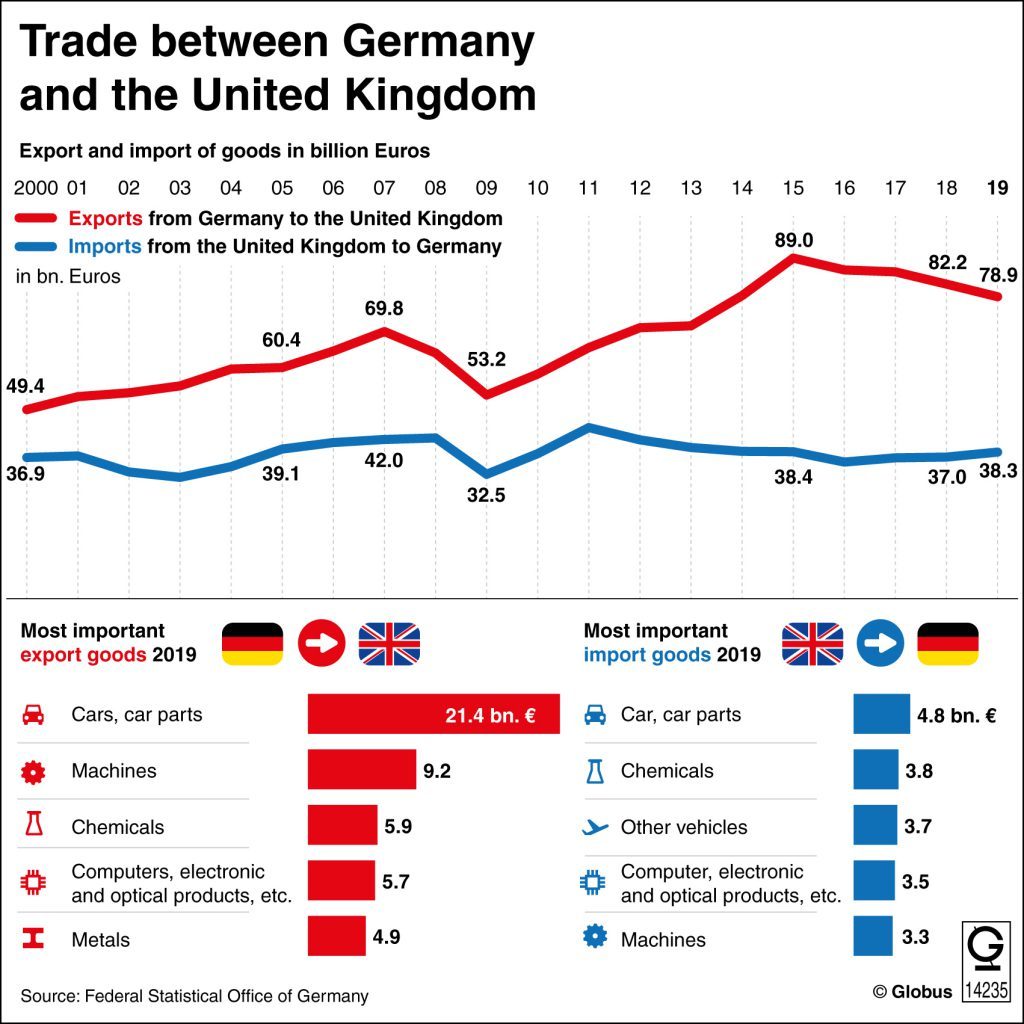Johnson expects no-deal Brexit unless EU makes ‘fundamental change’
The future relationship of Britain and the European Union hung in the balance on Friday, with London declaring trade talks to be effectively over – but also leaving the door open to negotiations next week.

Boris Johnson focus on preparing for no-deal
“It’s pretty clear … that our friends don’t want to negotiate,” British Prime Minister Boris Johnson said after announcing that he would now focus on preparing for a no-deal scenario unless the EU was prepared for “a fundamental change of approach.”
Both sides had expressed their disappointment with progress in talks in recent days and accuse each other intransigence.
EU leaders shrugged off Johnson’s threat on Friday, and seem poised to continue talks as time runs out on an end-of-year deadline.
European Commission President Ursula von der Leyen and German Chancellor Angela Merkel said they still want a deal and are willing to keep talking to London – but won’t ink an agreement at any price.
Obstacles in talks
With Britain due to leave a post-Brexit transition period at the end of the year, talks have been frustrated by disagreement on fisheries, assurances on environmental and social standards, and governance of potential disputes.
The announcement left Brussels “in interpretation mode” as to the fate of talks set for next week in London, an EU diplomat told dpa.
>>> READ ALSO – French fishermen on tenterhooks as Brexit talks drag on
The lead negotiators for both sides – Michel Barnier for the EU and David Frost for Britain – spoke on Friday, with London saying they would do so again early next week.
Last month, Johnson said that the mid-October EU summit in Brussels was the last realistic opportunity to clinch a deal.
“I concluded that we should get ready for January 1st with arrangements that are more like Australia’s, based on simple principles of global free trade,” he said on Friday, in a reference to minimalist World Trade Organization rules.
British premier want fundamental change from EU
The British premier left himself some wiggle room: “What we’re saying to them is only come here, come to us if there’s some fundamental change of approach,” Johnson said.
Johnson’s announcement came after a spat over a statement from EU leaders calling on Britain “to make the necessary moves to make an agreement possible.” This statement, according to London, indicated that a trade deal was not possible.
Serious economic disruption without deal
On January 1, the EU’s regulatory regime will cease to apply in Britain and a deal – if struck – would set out the new rules governing everything from customs checks and data-sharing to police cooperation. A no-deal scenario would lead to serious economic disruption, affecting businesses and supply chains on both sides.
Brussels fears London will undercut it in business by loosening often-costly rules on environmental protection or labour rights – commonly known as “dumping.”
>>> READ ALSO – UK expats count Brexit impact as banks shut accounts
London refutes this, and insists it has not left the EU only to be bound by its regulatory regime.
The EU also wants a trade deal to be contingent on continued fishing rights access, while Johnson wants British waters to be reserved chiefly for domestic exploitation.
Britain has so far based its negotiating mandate largely on the free trade deal Brussels struck with Canada – an agreement seen as a landmark in terms of the access offered, despite falling short of the blanket removal of tariffs and quotas the EU is offering London.
Higher level of safeguards from London
Brussels insists, however, that Britain’s proximity and economic interdependence means that London would have to meet far higher level playing field safeguards than those required of Canada.
If London cannot strike the kind of deal it wants, Johnson said Britain’s relationship with the EU could instead look similar to Australia’s.
Australia has no bespoke deal with the EU and trades on basic World Trade Organization terms, meaning both sides must contend with tariffs, quotas and other hurdles.
“From the outset we were totally clear that we wanted nothing more complicated than a Canada-style relationship based on friendship and free trade,” Johnson said.
“To judge by the latest EU summit in Brussels that won’t work for our EU partners. They want the continued ability to control our legislative freedom, our fisheries, in a way that is completely unacceptable to an independent country.”
Source: ednHUB / Deutsche Presse-Agentur